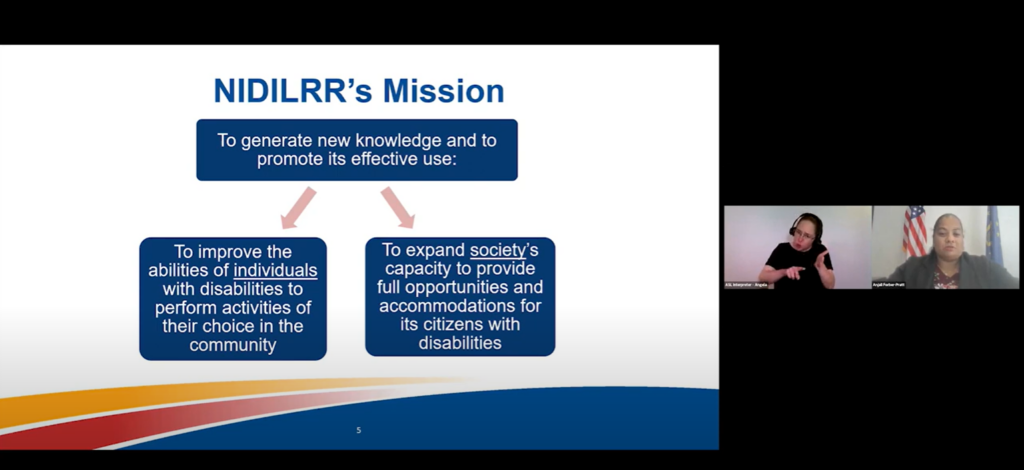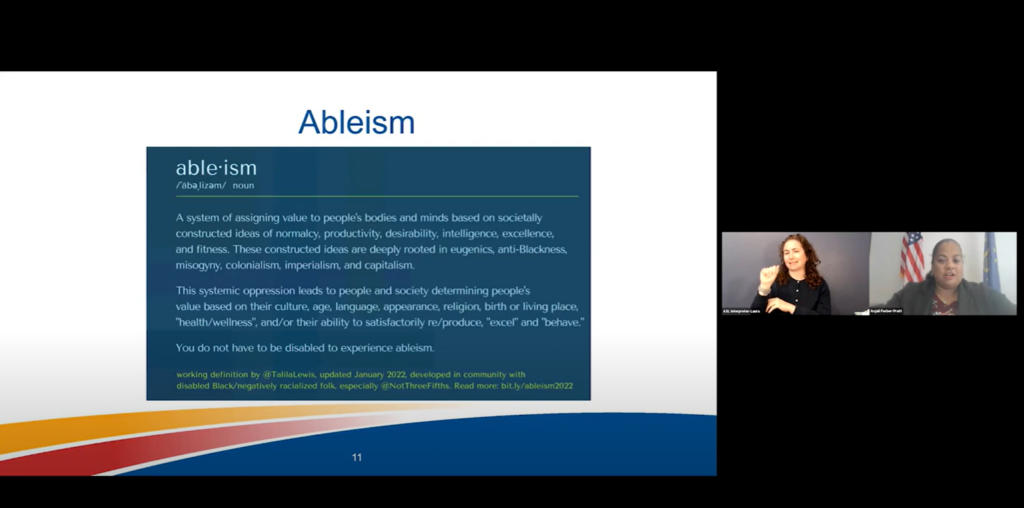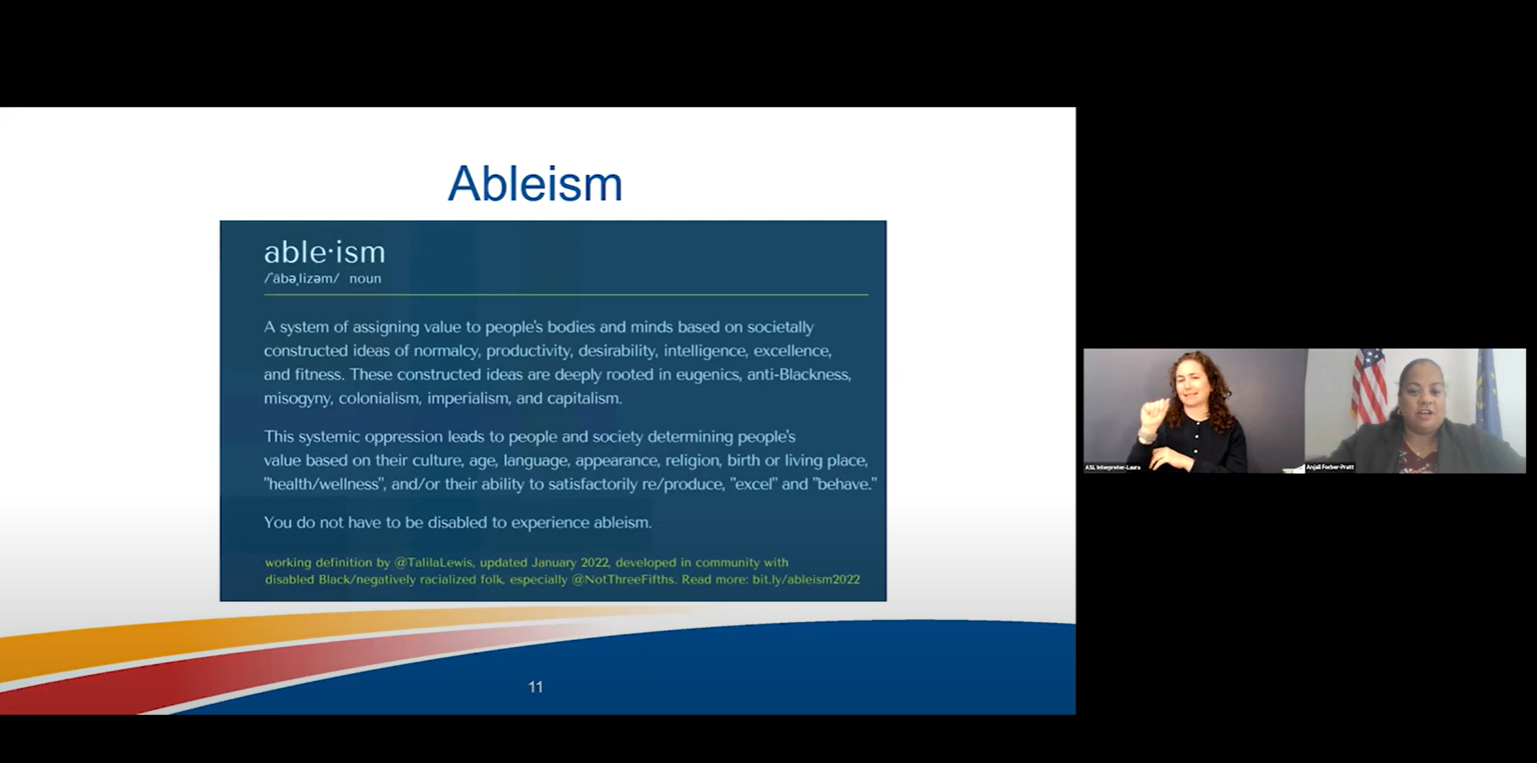 It’s gratifying when policymakers #LISTEN!
It’s gratifying when policymakers #LISTEN!
On November 21, 2022, CommunicationFIRST submitted comments to the National Institute on Disability, Independent Living, and Rehabilitation Research (NIDILRR) in response to the agency’s forthcoming 2024-2029 Long-Range Plan.
While listening to the NIDILRR Research Long Range Planning Stakeholder Follow Up Webinar recently, we were stunned to hear NIDILRR Director Dr. Anjali Forber-Pratt specifically mention the agency’s plans to better support people who need and use augmentative and alternative communication (AAC)!
From 18:11-19:16 of this captioned recording, Dr. Forber-Pratt says:
Language matters. NIDILRR has always had a strong commitment to those with the highest support needs and strives to lead the way on breaking down ableist stereotypes and hierarchies of disabilities.
For example, the terms “nonverbal” and “non-communicative” to describe people who cannot depend on their own speech to be heard and understood are inaccurate and outdated. Not all language is verbally spoken. You may be an alternative augmentative communication user — AAC, or using the signed modality. Language has evolved … but also explaining these other modalities and ways of communicating is something that we believe we must do a better job at.
Here’s what our comments said on this point:
Finally, language matters. The terms “nonverbal,” “minimally verbal,” and “noncommunicative” to describe people who cannot depend on their own speech to be heard and understood are inaccurate and harmful. They are inaccurate because they imply that the person has a language disability, which is impossible to know if the person has not been provided with adequate language-based communication tools and supports. They are harmful because that embedded assumption results in a denial of access to robust, language-based AAC for those who need it. Terms like “severe” and “profound” are vague and dehumanizing. Similar terms such as “special needs” and “complex communication needs,” are easily misinterpreted and othering. Every person has the basic need and the fundamental right to be heard and understood, and those needs fluctuate from time to time. Some people may require substantial supports to be understood, but the need to communicate is not “special” or “complex.” As NIDILRR takes steps to substantially involve our members in setting priorities and other facets of its research agenda to improve the lives of people who need and use AAC, we encourage the agency to choose the nomenclature it uses carefully and in continuing consultation with those most affected by its choices.
It is encouraging when government agencies actually read and digest public comments. It is even more exciting when an agency director publicly commits to challenging ableist misconceptions about AAC users!

Read our comments to NIDILRR here.
Watch NIDILRR Director Anjali Forber-Pratt’s remarks here.
#LanguageMatters #BecauseCommunicationIsAHumanRight #LISTEN

